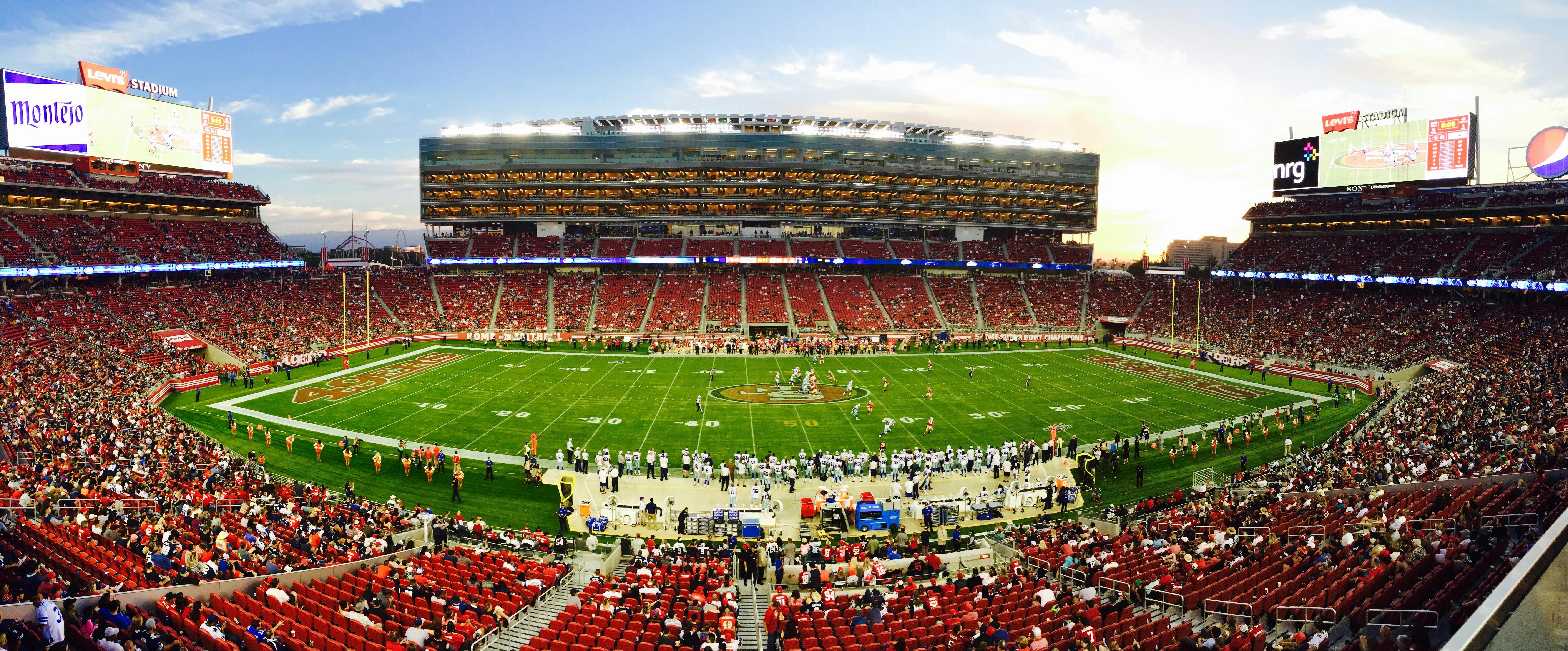
Why NFL Continues to Gain Popularity in the US?
The popularity of the NFL in America can be attributed to several key factors that have contributed to its continuous growth over the years. One significant aspect of the NFL's popularity is its strategic expansion efforts in the 1980s and 1990s. During this period, the league made pivotal decisions to introduce new franchises and tap into previously untapped markets, thereby broadening its appeal and attracting new fans.
Why does the NFL continue to be extremely popular in the US?
The emergence of star players and dominant teams, such as the Dallas Cowboys and the San Francisco 49ers, during the 1990s propelled the NFL into the spotlight. The intense competition and unpredictability of NFL games offered viewers a thrilling and engaging experience, leading to increased fan engagement and higher viewership numbers.
Furthermore, the NFL's ability to adapt to changing media landscapes and capitalize on television broadcasting deals has played a significant role in its popularity. With broadcasting agreements worth billions of dollars, the NFL ensures widespread accessibility of its games, reaching millions of viewers across the country.
The league's proactive approach to embracing new technologies and platforms, including streaming services and digital media, has also enhanced its reach and engagement with fans. By staying at the forefront of technological advancements, the NFL continues to attract a diverse audience and maintain its position as one of the most popular sporting leagues in America.
Also Read: Why is Pickleball So Addictive?
Why is NFL important in America?
The NFL holds significant cultural and economic importance in America, serving as a unifying force that brings together communities and transcends social boundaries. The league's journey to becoming the most popular sport in America can be traced back to strategic developments and milestones throughout its history.
As I stated, the NFL underwent strategic expansion efforts in the 80s and 90s and introduced new franchises, which expanded its fan base and solidified its position as a premier professional sports league. The emergence of star players and dominant teams during this period further fuelled the league's popularity capturing the imagination of fans across the nation.
Moreover, the NFL's lucrative television broadcasting deals and partnerships with major networks have contributed to its widespread visibility and accessibility, making football games a staple of American culture and entertainment. The Super Bowl, in particular, has become a national event, attracting millions of viewers and generating substantial economic activity through advertising and sponsorship deals.
The NFL's influence extends beyond the realm of sports, shaping American culture and society in profound ways. From the excitement of game day to the camaraderie of tailgating parties, football has become ingrained in the fabric of American life, fostering a sense of community and shared identity among fans.
Why is NFL better than NBA?
Comparing the NFL to the NBA reveals distinct differences in gameplay, fan engagement, and cultural impact, each contributing to the unique appeal of both leagues. While opinions may vary, several factors set the NFL apart and make it stand out as a preferred choice for many American sports enthusiasts.
One key aspect that distinguishes the NFL from the NBA is the nature of the sport itself. Football's combination of strategy, athleticism, and physicality creates an exciting and high-stakes environment that captivates viewers and keeps them on the edge of their seats. The intensity of NFL games, coupled with the strategic complexity of playcalling and execution, offers a unique viewing experience that resonates with fans across generations.
Additionally, the NFL's status as America's most popular sport is reflected in its widespread cultural influence and economic significance. From the excitement of game day to the spectacle of the Super Bowl, football has become a shared cultural experience that brings communities together and transcends social boundaries.
Moreover, the NFL's expansive reach and accessibility, facilitated by lucrative broadcasting deals and partnerships with major networks, ensure that football games are readily available to fans across the country. This accessibility, combined with the league's commitment to innovation and technological advancement, allows the NFL to engage with a diverse audience and maintain its position as a dominant force in American sports.
While the NBA undoubtedly has its own appeal and loyal fan base, the NFL's unparalleled popularity and cultural impact underscore its status as the premier professional sports league in America.
How did the NFL become America's game?
The NFL's journey to becoming America's game can be traced back to its strategic expansion efforts and cultural significance throughout its history. In the 1980s and 1990s, the league underwent significant growth and development, introducing new franchises and expanding into untapped markets across the country.
The emergence of star players and dominant teams, such as the Dallas Cowboys and the San Francisco 49ers, during this period further elevated the NFL's profile and captured the imagination of fans nationwide. The intense competition and drama of NFL games, coupled with the strategic complexity of playcalling and execution, created an exciting viewing experience that resonated with audiences of all ages.
Moreover, the NFL's ability to adapt to changing media landscapes and capitalize on television broadcasting deals played a crucial role in its rise to prominence. With broadcasting agreements worth billions of dollars, the NFL ensured widespread accessibility of its games, reaching millions of viewers across the country hence solidifying its position as a cultural phenomenon.
The Super Bowl, in particular, emerged as a national event, attracting millions of viewers and generating substantial economic activity through advertising and sponsorship deals. From the excitement of game day to the camaraderie of tailgating parties, football became ingrained in the fabric of American life, fostering a sense of community and shared identity among fans.
Through its strategic growth initiatives, cultural impact, and widespread accessibility, the NFL became more than just a sport, it became a symbol of American excellence and unity, earning its title as America's game.
Why do Americans love NFL so much?
The NFL's enduring popularity in America can be attributed to a combination of factors that resonate with fans across the country. One key aspect of the NFL's appeal is its ability to provide entertainment and excitement on a grand scale. From the thrill of game day to the spectacle of the Super Bowl, football offers an immersive and electrifying experience that captivates audiences of all ages.
Moreover, the NFL's status as America's most popular sport is reflected in its cultural significance and widespread appeal. Football has become more than just a game, it's a shared cultural experience that brings communities together and fosters a sense of camaraderie among fans nationwide.
Additionally, the NFL's strategic expansion efforts and commitment to innovation have helped it stay relevant in an ever-changing media landscape. With broadcasting agreements worth billions of dollars, the NFL ensures that its games are readily accessible to fans across the country, further enhancing its reach and engagement.
Furthermore, the NFL's rich history and tradition add to its allure, creating a sense of nostalgia and pride among fans. Whether rooting for their favorite team or reminiscing about memorable moments in football history, Americans have developed a deep and enduring love for the sport that transcends generations.
Overall, the NFL's ability to provide thrilling entertainment, foster a sense of community, and celebrate American values has solidified its place as a beloved pastime and cultural institution in the hearts and minds of millions of Americans.
Author’s Opinion and Advice
In my view, the NFL's incredible popularity in America boils down to its knack for staying relevant and keeping fans hooked, no matter the era. Despite facing competition from various sports, the league's ability to adapt and offer thrilling experiences has made it a cultural icon. From expanding strategically to embracing new technologies, the NFL has kept fans on the edge of their seats, ensuring its place as a beloved part of American life.
Looking ahead, the NFL needs to stay ahead of the curve by understanding what fans want and how they engage with the game. By being innovative and attentive to fan needs, the league can ensure it remains America's favorite pastime. Whether it's using data to improve the viewing experience or embracing new trends, the NFL must keep the excitement alive to continue inspiring fans for years to come.






